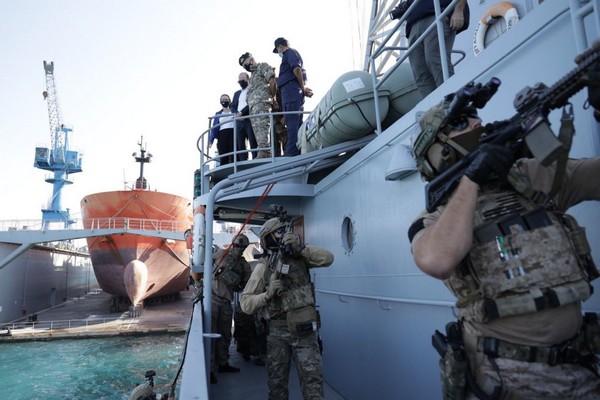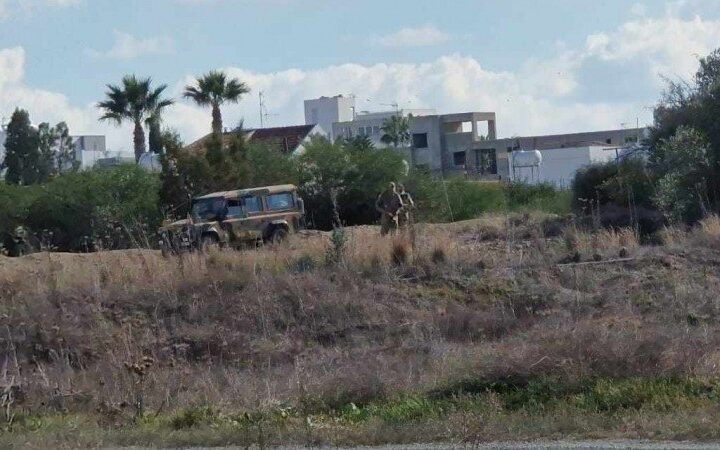With the cost-of-living crisis and a looming global recession occupying most of our thoughts, there is little room to contemplate the future of the Cyprus problem.
Arguably, the island’s political division has driven itself to a standstill, and nothing positive can come of it.
Cyprus has become the Cold War that history forgot, and our political leaders have done their utmost to bury it under historical red lines.
Campaigning for the Presidential elections is in full swing, but nobody is putting themselves forward as the person to break the ice and start rebuilding trust.
Over the years, the island’s division has been allowed to fester untreated; the ground has been poisoned as harsher reactionary voices are being heard.
And where do UN-brokered peace talks proceed if leaders can’t be persuaded to pick up the baton again?
What pieces of the wreckage can be salvaged from the train crash at Crans Montana in 2017?
Another opportunity was missed when the landscape wasn’t as bleak as the current backdrop, where the bandwidth for negotiations has narrowed significantly.
Despite Nicosia trying to make itself relevant to the international community, the world has moved on over the past five years.
There is a colder, more hostile climate where rogue players disrupt the international order.
North Korea, Russia, China, and Turkey extend their sphere of influence and regional authority.
Cyprus has seemingly wedged itself into this new climate of antagonism and friction.
Although its legitimate energy search is causing consternation in Ankara, Nicosia’s warming relations with Washington also pits it against Moscow.
America lifting its decades-long arms embargo on Cyprus comes with strings attached – one of them is to deny docking rights to the Russian navy.
This is easy to comply with now due to sanctions against Russia for its Ukraine aggression and obsession with obliterating its neighbour.
Nicosia has trust issues and must prove it’s a worthy US ally which is why the arms flow is on a time switch.
The government also fears that Turkey has become a more prominent international player after its success as a mediator in the Russia-Ukraine conflict.
With wider interests involved, Turkey’s belligerence in the Aegean and gunboat diplomacy in Cyprus’ EEZ is given a wide berth.
Dynamite
Adding dynamite to the mix is Turkey’s renewed determination for two separate states in Cyprus, abandoning the accepted parameters of previous UN negotiations.
Such bravado has enabled Turkey to steamroll into fenced-off Varosha and threaten to kick out UN peacekeepers from the north.
Inertia on the Cyprus problem has allowed the situation to spiral out of control where the UN is no longer seen as relevant or helpful.
Moreover, removing the US arms embargo could lead to a weapons build-up on the island, as Turkey has warned it will bolster its occupation troops in response.
The National Guard is also stuck with ageing Russian weaponry and the need to find spare parts.
And if it buys shiny American hardware, the Russian arms will become obsolete, which is why the US wants them shipped to Ukraine.
Turkish-Cypriot authorities are preparing to evict UN troops from their bases in the north which spells trouble for the peacekeeping operation.
In another recognition gambit, the north argues it needs to give its official consent for UNFICYP to go about its business, not only the Republic of Cyprus.
A standoff between Greek Cypriot farmers and Turkish troops on the buffer zone’s fringes highlights the situation’s volatility.
The Foreign Ministry wasted no time giving the UN a stern telling-off, but it may consider what division would look like without them.
The UN Security Council renews UNFICYP’s mandate every six months following the consent of the Republic, not the unrecognised breakaway state.
Observers believe the Turks want to kick out the UN from Famagusta in its plot to annex Varosha.
Coincidentally, the ultimatum came after the US announced it was lifting the arms ban, as Turkey feels the US is taking sides.
US-Turkey relations have also deteriorated since Ankara bought S-400 surface-to-air missiles; a sub-strategic Russian weapon Washing believes could be used to spy on its fighter jets.
Turkey was barred from buying fifth-generation F-35 fighter bombers and upgrading US F-16s it already has.
Reading the signs, Cyprus has not stood still, improving its regional alliances and combat capability in war games with the French, Israelis, Greece, and the US.
So, Cyprus’ Cold War has a few scarier unwritten chapters.










